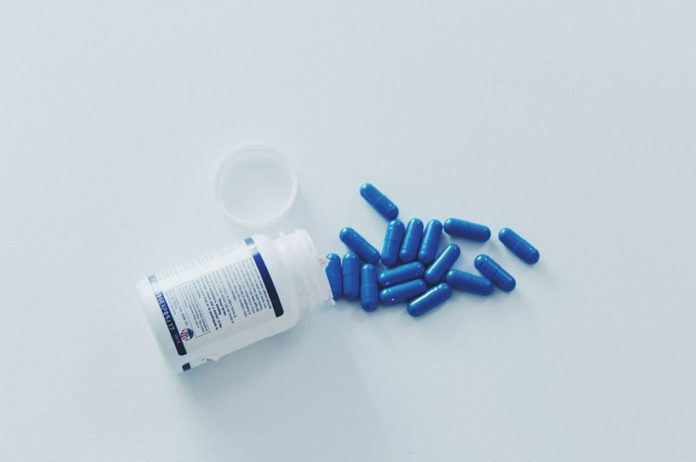Recent reports have warned that without antibiotics there could be a pandemic of drug-resistant infections worse than COVID-19. While researchers continue to probe the long-term effects of antibiotic resistance, new findings have highlighted one life-altering effect the vital drug could have on longevity.
While experts continue to investigate the long-term repercussions of antibiotic resistance, recent research has revealed one potentially life-changing effect the vital drug could have on longevity.
According to some recent projections, a lack of antibiotics to combat resistance could endanger 10 million lives worldwide by 2050.
Vital human medicine is being administered incorrectly, jeopardising its efficacy against the world’s most common infectious disease.
However, a new study has revealed a serious impact of administering the medicine haphazardly.
Researchers have warned that antibiotics’ effects on metabolism and inflammation via the gut’s microbiota – the bacteria that dwell in the digestive tract – may decrease longevity.
This effect is thought to be due to the sort of microbiome that recolonizes after antibiotic exposure.
Professor David Lynn, project leader at Flinders University, Australia, said:
“This is the first time we’ve been able to monitor the impact that changes in gut microbiome due to antibiotics in early life can have on mice throughout their normal lifespan.”
The study is the first of its kind to look at the impact of exposing normal healthy mice to antibiotics from birth through old age.
They discovered that antibiotic use drastically reduced the diversity of the gut microbiome.
The stomach was then repopulated with two different types of dominant microbiota known as PAM I and PAM II.
Professor Lynn explained:
“Mice with PAM II microbiome displayed increased insulin resistance in later life, indicating metabolic dysfunction, as well as significantly higher levels of inflammation in multiple different tissues including the blood, liver and brain.
“The PAM II mice died at approximately double the compared to those that were repopulated with PAM I microbiota, even though both groups were littermates exposed to the same antibiotics.”
Despite the fact that the microbiota makeup of both groups of exposed mice returned to normal in the weeks following antibiotic administration, the effects on animals were consistent.
Professor Lynn added:
“Our data suggests that the type of micro biome that repopulates the gut after antibiotics has the potential to reprogram the mammalian immune system with long-lasting effects including on longevity. “
These findings imply that variations in the microbiota after antibiotics in early life can long-term reprogram the immune system, with the repercussions of this reprogramming manifesting later in life, including impacts on immunity, metabolism, and potentially lifespan.
“Previous studies investigating the causative link between gut microbiota and lifespan have largely been restricted to invertebrates and mice with shortened lifespan due to genetic deficiency.
Professor Colin Garner, Chief Executive of Antibiotic Research UK, told express.co.uk:
“The composition of the microbiome i.e. the collection of microorganisms in the body particularly in the gut has been found to be very important in human health.
“Alterations in microbiome composition are associated with numerous health disorders like inflammatory bowel disease, malnutrition, metabolic disorders, asthma and neuro-degenerative diseases. We can now add to this list alterations in life-span.
“[While] researchers have found that giving antibiotics early in life led to reduced lifespan in treated animals, it needs to be established if this animal study is reproduced in humans.”
Scientists advocating for antimicrobial drugs that are more specific in the bacteria they kill have created new algorithms that they believe could help in the construction of effective new antibiotics from the ground up.
This would imply that antibiotics destroy only the bacteria that cause illnesses, rather than all good bacteria in the stomach.
Professor Garner added:
“We know that antibiotics wipe out many gut bacteria that it can take some time for the gut to recover.
That is why it is critical to use antibiotics only when absolutely necessary, rather than for minor purposes such as curing a cough, cold, or sore throat.
“It may be that the deleterious effects of antibiotics on the microbiome will become as important as antibiotic resistance in their clinical use.”
Antibiotic resistance develops when bacteria adapt and evolve to avoid the processes by which antimicrobial medications kill them.
Image Credit: Getty
